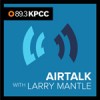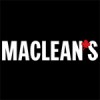In The Sober Truth, Dr. Lance Dodes, who recently retired as Assistant Clinical Professor of Psychiatry at Harvard Medical School, breaks down the science behind studies that appear to substantiate AA’s treatment model, finding that they are rife with problems in both methodology and analysis, and sometimes simply omit data that did not fit the researcher’s conclusions.
Most of the research and accompanying data on AA has relied on observational studies (as opposed to far more valid controlled studies). The prestigious Cochrane Collaboration’s review of all studies on 12-step programs over 40 years showed, in fact, that there weren’t any studies that unequivocally demonstrated AA’s effectiveness, or any effectiveness of “Twelve Step Facilitation” therapy (TSF) which is the nearly universal offering of rehabs. Indeed, studies showed that between just 5% and 10% of people who go to AA become sober members. “Nobody who has looked at this data would dispute that people who attend AA most often and stay the longest are more likely to improve than dropouts,” Dr. Dodes observes. But it is ruinous public health policy to refer everyone to AA; this practice is actually harming the other 90% of people suffering with addictions for whom AA is useless.
Even though our judicial system, the media, and much of the lay public have bought into the idea that AA and the 12-step model is the only viable way to recover from addiction, the highest percentage of people who get better do so without any treatment at all. “Spontaneous remission,” the term oncologists use for this phenomenon, should always be used as a baseline for any discussion of treatment efficacy, since any putative “cure” must perform better than doing nothing. Project MATCH, one of the most ambitious studies ever undertaken to assess 12-step treatment, found that a higher percentage of alcoholics get better without any treatment than with AA, suggesting that at least some of those counted in AA’s success rate are people who would recover on their own anyway.
No book has ever looked more closely at the flawed science behind AA’s monopoly, and no reader can possibly come away from The Sober Truth without a healthy dose of skepticism for the parade of poorly designed studies that masquerade as legitimate science in the study of addiction.







